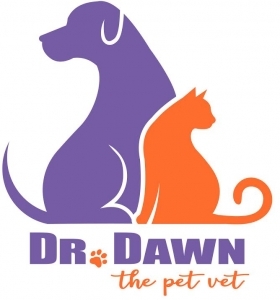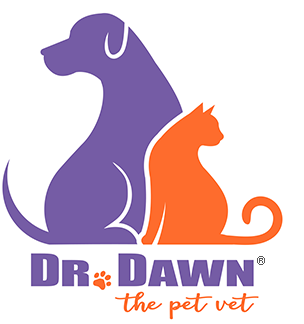There are recommendations as to what you might be able to do to help feed and supplement your dog’s diet to help prevent cancer. As the development of cancer is complex, involving many factors, including genetics, which you certainly cannot control, there are certain compounds that have been shown to help your pet’s body fight and prevent cancer. They may augment the ability to fight or prevent it, and thus it may not be a bad idea to incorporate them into your pet’s regimen of diet and supplements. The following is a brief overview of the latest scientific information in that field.
Omega-3 fatty acids These are often found in fish oils, and are important nutrients that the body cannot make on its own, and thus must be acquired through diet. There is a great deal of research focusing on the possible health benefits of omega-3 fatty acids, as well as the potential health risks. Perhaps the strongest evidence for anti-cancer benefits is the fact that omega-3 fatty acids have strong anti-inflammatory effects. Chronic inflammation has been shown to be one of the primary causes of cancer. The detrimental effects of omega-3 supplementation are that they affect platelets and clotting adversely. However, clinically, the animals tested don’t seem to develop a bleeding problem.
 Vitamin D This vitamin has a protective effect against colon cancer in humans, in many studies. There is evidence that it has a protective effect on other cancers, yet it is inconclusive evidence. Excessive doses of vitamin D can, in fact, be harmful in that it can increase the level of calcium in the body, resulting in kidney damage, or even failure. Consult with a veterinarian before adding it to your dog’s diet, to determine if it right for him, and the right dose.
Vitamin D This vitamin has a protective effect against colon cancer in humans, in many studies. There is evidence that it has a protective effect on other cancers, yet it is inconclusive evidence. Excessive doses of vitamin D can, in fact, be harmful in that it can increase the level of calcium in the body, resulting in kidney damage, or even failure. Consult with a veterinarian before adding it to your dog’s diet, to determine if it right for him, and the right dose.
Vitamin E This is a fat-soluble nutrient with antioxidant properties. Early studies pointed to a protective effect against certain types of cancers. One well respected study, in 2008, concluded that it, in fact, might not protect against prostate cancer risk in men. With selenium, another antioxidant, it was found to even possibly increase the risk of prostate cancer. Two other studies a few years later substantiated this finding, making vitamin E supplementation something NOT recommended to prevent cancer in pets or people.
Vitamin A Another fat-soluble nutrient, Vitamin A has been studied for its potential cancer fighting abilities. The results of studies are currently inconclusive. One very large study in people associated its intake with a lower risk of gastric cancer. Still, another study did not replicate the beneficial effect of the vitamin.
 Vitamin C This has been recommended as a cancer treatment for many years by some. It is not technically considered a preventative. The question remains as to whether highdoses given intravenously are helpful in the treatment of cancer. Vitamin C therapy results are inconclusive at this time, either when used alone or in combination with chemotherapy or radiation therapy.
Vitamin C This has been recommended as a cancer treatment for many years by some. It is not technically considered a preventative. The question remains as to whether highdoses given intravenously are helpful in the treatment of cancer. Vitamin C therapy results are inconclusive at this time, either when used alone or in combination with chemotherapy or radiation therapy.
raw and grain-free diets These two approaches are frequently questioned by dog owners, as to whether these diets will decrease the cancer risk in their pets. There actually exists very little scientific data proving the beneficial effects of feeding raw food. There are definite known health risks associated with feeding a raw food diet, in terms of bacteria sometimes being present. Grain-free diets are theoretically appropriate for most dogs. Still, owners need to be aware that some grain-free diets are exceedingly high in other carbohydrates. The best diets are those that are appropriately balanced and appetizing to your dog.
Overall, the amount of information in the veterinary nutrition field is increasing . There are board-certified veterinary nutritionists who are the experts and likely the best people to ask for the most up-to-date information about cancer prevention diets or supplements. At least for the time being, they are the best references, and should be referred to in lieu of pet food store owners , etc. Question your source when being advised on diets and supplements, and try to be conservative and do no harm, while you are trying to do the best thing for your pet. Not all labels about food and supplements are accurate.
Dr. Dawn
Please share and subscribe here





